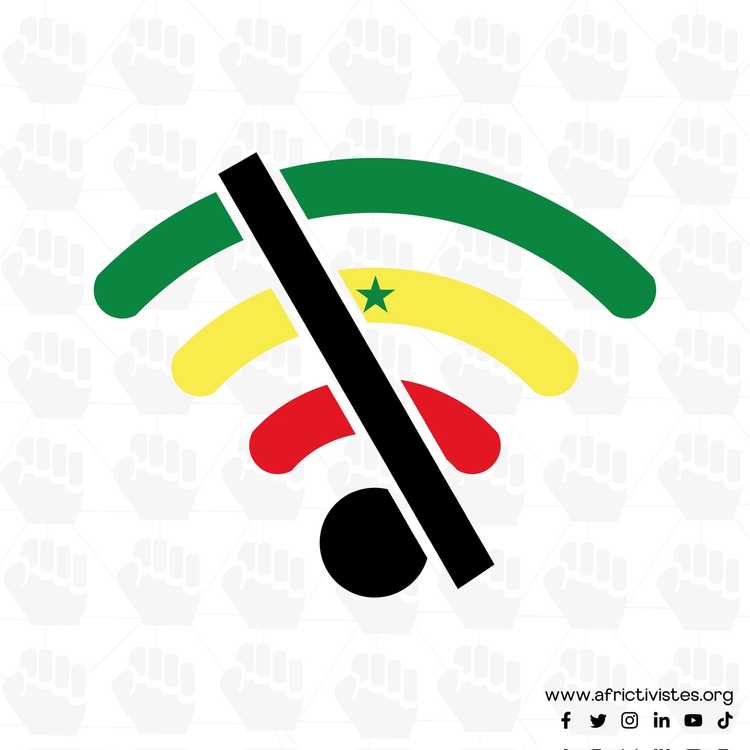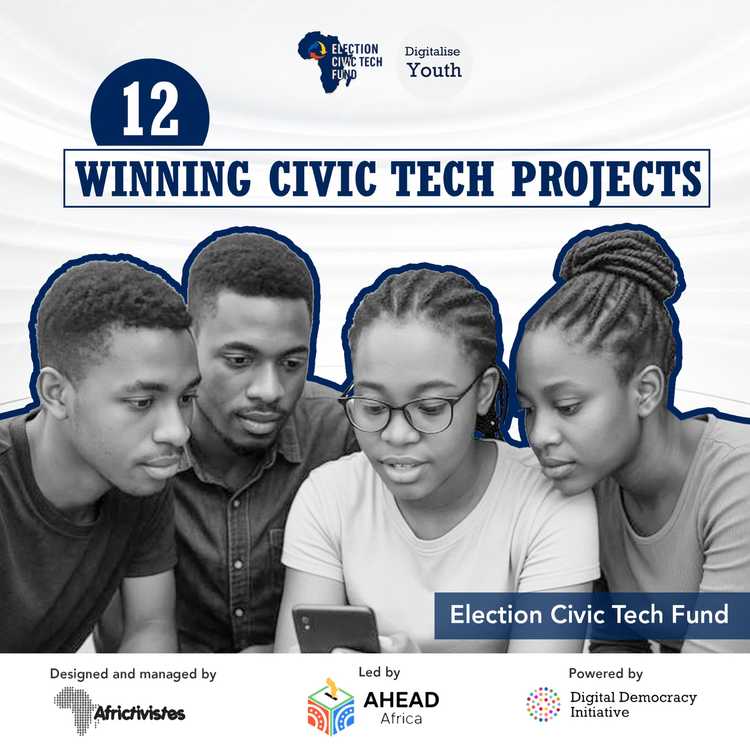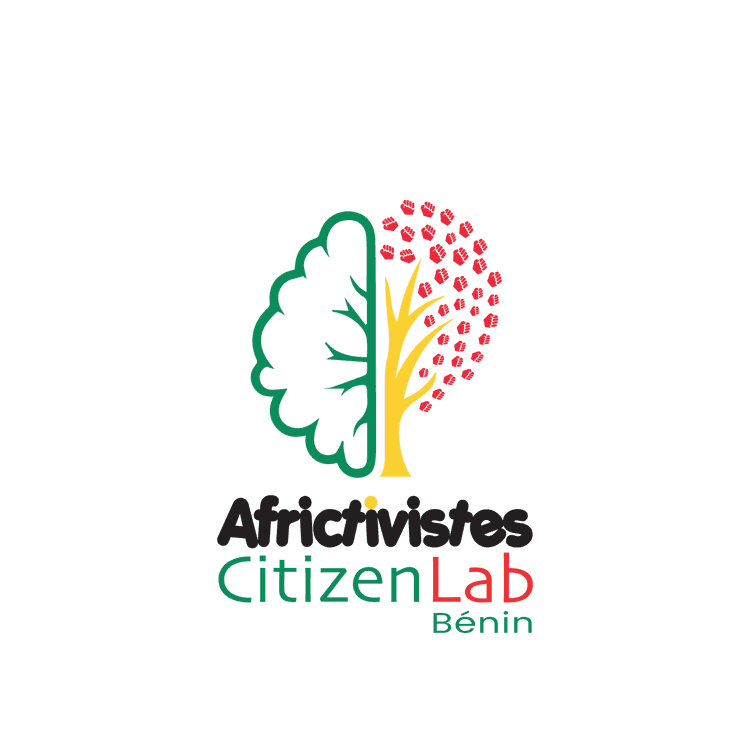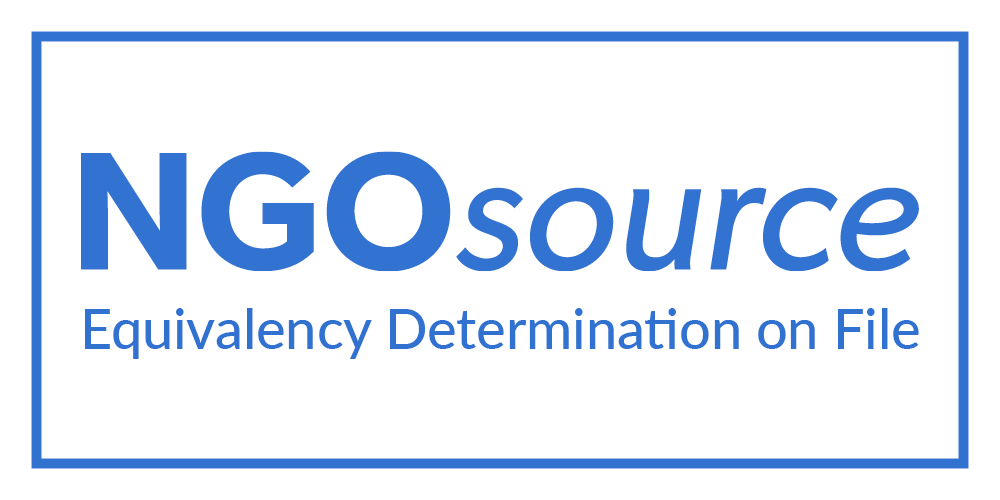AfricTivistes urges govt to lift internet restriction!
In a press release issued this Monday, July 31, 2023, the Ministry of Communication, Telecommunications and Digital Economy announced the temporary suspension of the internet (internet network via mobile data). The reason given is to halt “the dissemination of hateful and subversive messages conveyed on social media”.
Cutting off the internet and other forms of online restriction violate freedom of expression and access to information. The authorities must refrain from cutting off the internet out of respect for fundamental rights, particularly in the midst of demonstrations and tensions.
We, AfricTivistes, a pro-democracy organisation promoting the informed use of digital technologies for effective citizen participation, strongly denounce the restrictions imposed by the Senegalese government on the use of the internet.
This measure follows the arrest on Friday July 28 of opposition figurehead Ousmane Sonko, leader of the Patriotes du Sénégal pour l’Éthique, le Travail et la Fraternité (PASTEF) party.
Mr. Sonko, who has been placed under a committal order this Monday, faces seven charges ranging from “inciting insurrection to violent theft.” Some Senegalese perceive this new case against Mr. Sonko as an attempt to oust him politically, prompting a large-scale mobilisation, especially among young people. In early June, violently repressed demonstrations resulted in over thirty deaths.
Censorship of any kind in the cyberspace violates the Universal Declaration of Human Rights (UDHR), the African Charter on Human and Peoples’ Rights (ACHPR) and the Declaration of Principles on Freedom of Expression and Access to Information in Africa, which was drawn up in accordance with article 45, paragraph 1 of the ACHPR.
In the same Declaration, it is clearly stated that States may not restrict the right of individuals to seek, receive and impart information through digital means, unless this is justifiable under international human rights law.
The restrictions also violate Senegal’s commitments under the Open Government Partnership (OGP) to guarantee the right of access to information for citizens.
They also aim to restrict freedom of expression, access to information and the right to peaceful assembly, to engage in income-generating activity, among other rights guaranteed by national, regional and international institutions.
In many African countries, the Internet is routinely blocked during elections and demonstrations. Unfortunately, Senegal, whose democratic tradition is acknowledged the world over, has joined this list of censorious countries.
Last June, the Senegalese government restricted access to Facebook, Twitter, WhatsApp, Instagram, YouTube, Tik tok, Telegram and other social media platforms from June 1 to June 6, following an official announcement by the country’s Minister of the Interior. The mobile Internet blackout lasted 3 days. In addition, the private television channel Walfadjri was banned from broadcasting for a whole month.
We recall that censorship and Internet blackouts disrupt the free flow of information, economic activities that depend heavily on the Internet, and prevent people from exercising their right to access universal service.
We condemn all forms of Internet censorship and disruption, particularly those that have a disproportionate impact on fundamental rights, including freedom of expression, freedom of information and freedom of assembly.
We encourage the government of Senegal to respect citizens’ rights as well as its regional and international commitments, while deploring the fact that there are no measures at national or regional level to encourage the authorities to uphold these rights.
We call on the government of Senegal to lift this suspension and to avoid using internet restriction measures to control dissenting voices and legitimate protest.
We also call on the Senegalese government, in collaboration with the various Internet Service Providers (ISPs), to implement a compensation policy in line with the damage caused.
We remind the government that such restrictive actions raise major concerns about freedom of expression and demonstration, the right to information and access to cyberspace, and the state of democracy in Senegal.


![[Guinée Bissau] : Déclaration conjointe des défenseurs des droits humains contre la confiscation de la volonté populaire !](/static/47eaffe3d1dedbfad2242b54fada4cdd/fce2a/Capture-decran-FR-2025-12-01-a-16.34.25.png)
![[Guinée-Bissau] Déclaration conjointe – Afrikajom Center et AfricTivistes condamnent fermement la prise de pouvoir par les militaires et alertent face au risque d’une crise politique !](/static/4b1663a0a257018af8865d186bb343ab/9e635/Putsch-Guinee.jpg)


![[Tanzanie] 🇹🇿 AfricTivistes condamne fermement la violente répression des manifestations en Tanzanie !](/static/adf91a1c13cd101f988b6b6971928880/9e635/TZN.jpg)
![[Cameroun] AfricTivistes dénonce la répression meurtrière des manifestations et appelle au respect des droits fondamentaux !](/static/6399a9d8e94e3ae1f681f86178520d96/9e635/WhatsApp-Image-2025-10-27-at-15.32.48.jpg)





![[Madagascar] la Génération Z, moteur du sursaut citoyen !](/static/c0ae8cee11138838fa76f6b69a00830f/9e635/3-2.jpg)







